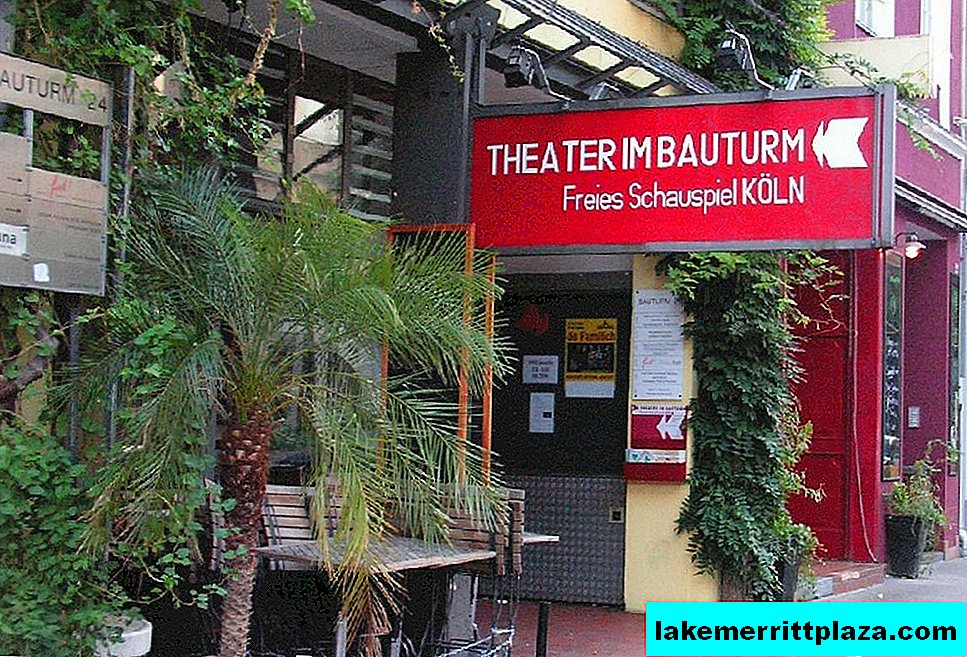Conjugation of verbs
SLEEP
- DORMIRE - SLEEP ("Dormire")
- IO DORMO - I SLEEP ("Io Dormo")
- TU DORMI - YOU ARE SLEEPING ("Tu Dormi")
- LUI DORME - HE SPIT ("Louis Dorme")
- LEI DORME - SHE IS SLEEPING
- LEI DORME - YOU SLEEP (respectfully)
- NOI DORMIAMO - WE ARE SLEEPING ("Noi Dormiamo")
- VOI DORMITE - YOU SLEEP ("Howl Dormite")
- LORO DORMONO - THEY ARE SLEEPING ("Loro Dormono")
SEE
- VEDERE - SEE ("Wedera")
- IO VEDO - I SEE ("Io Vedo")
- TU VEDI - YOU SEE (Tu lead)
- LUI VEDE - HE SEES ("Louis Veda")
- LEI VEDE - SHE SEES
- LEI VEDE - YOU SEE (respectfully)
- NOI VEDIAMO - WE SEE ("Noah Vedyamo")
- VOI VEDERE - YOU SEE ("Howl Weeder")
- LORO VEDONO - THEY SEE ("Loro Vedono", emphasis on the first syllable)
Past tense verb VEDERE will look like Visto. Example:
- IO HO VISTO - I SAW
ANSWER
- RESPONDERE - ANSWER ("Responder")
- IO RESPONDO - I MEET ("Io Resondo")
- TU RESPONDI - YOU ARE RESPONSIBLE ("Tu Respondi")
- LUI RESPONDE - HE ANSWERS ("Louis Responde")
- LEI RESPONDE - SHE ANSWERS
- LEI RESPONDE - YOU ARE LIVING (respectfully)
- NOI RESPONDIAMO - WE ARE RESPONSIBLE ("Noi Respondyamo")
- VOI RESPONDETE - YOU ARE RESPONSIBLE ("Howl Response")
- LORO RESPONDONO - THEY RESPOND ("Loro Oespondono")
We bow in the past tense:
- RISPOSTO - ANSWERED ("Risposto")
- IO HO RISPOSTO - I ANSWERED ("Io O Risposto")
- TU HAI RISPOSTO - YOU ANSWERED ("Tu Ai Risposto")
- LUI HA RISPOSTO - HE ANSWERED ("Louis A Risposto")
- LEI HA RISPOSTO - SHE ANSWERED
- LEI HA RISPOSTO - YOU ANSWERED (respectfully)
- NOI ABBIAMO RISPOSTO - WE ANSWERED ("Noi Abbyamo Risposto")
- VOI AVETE RISPOSTO - YOU ANSWERED ("Howl Avete Risposto")
- LORO HANNO RISPOSTO - THEY ANSWERED ("Loro Anno Risposto")
OPEN
- Aprire - OPEN ("Open")
- IO APRO - I AM OPENING ("Io Apro")
- TU APRI - YOU OPEN ("Tu Apri")
- LUI APRE - HE OPENS ("Louis Apre")
- LEI APRE - SHE OPENS
- LEI APRE - YOU OPEN (respectfully)
- NOI APRIAMO - WE OPEN ("Noi Apryamo")
- VOI APRITE - YOU OPEN ("Howl Apriete")
- LORO APRONO - THEY OPEN (“Loro Aprrono”, emphasis on the first syllable)
We bow in the past tense:
- APRETO - OPEN ("Apreto")
- IO HO APRETO - I OPENED ("Io O Aperto")
- TU HAI APRETO - YOU OPENED ("Tu Aperto")
- LUI HA APRETO - HE OPENED ("Louis Aperto")
- LEI HA APRETO - SHE OPENED
- LEI HA APRETO - YOU OPENED (respectfully)
- NOI ABBIAMO APRETO - WE OPENED ("Noi Abyamo Aperto")
- VOI AVETTE APRETO - YOU OPENED ("Voi Avette Aperto")
- LORO HANNO APRETO - THEY OPENED ("Loro Anno Aperto")
CLOSE
- CHIUDERE - CLOSE ("Cuder")
- IO CHIUDO - I CLOSE ("Io Kyudo")
- TU CHIUDI - YOU CLOSE ("Tu Curdy")
- LUI CHIUDE - HE CLOSES ("Louis Cude")
- LEI CHIUDE - SHE CLOSES
- LEI CHIUDE - YOU CLOSED (respectfully)
- NOI CHIUDIAMO - WE HAVE CLOSED ("Noi Cuidyamo")
- VOI CHIUDETE - YOU HIDDEN (Howling Kyudet)
- LORO CHIUDONO - THEY CLOSED ("Loro Cudono")
We bow in the past tense:
- Chiuso - CLOSED ("Chiuso")
- IO HO CHIUSO - I CLOSED ("Io O Chiuso")
- TU HAI CHIUSO - YOU CLOSED (Tu Ai Chiuso)
- LUI HA CHIUSO - HE CLOSED (Louis Chiuso)
- LEI HA CHIUSO - SHE CLOSED
- LEI HA CHIUSO - YOU CLOSED (respectfully)
- NOI ABBIAMO CHIUSO - WE CLOSED ("Noah Abbyamo Chiuso")
- VOI AVETE CHIUSO - YOU HAVE OPENED ("Voi Avete Chiuso")
- LORO HANNO CHIUSO - THEY CLOSED ("Loro Anno Chiuso")
Example:
- IO HO APERTO LA FINESTRA E CHIUSO LA PORTA - I OPEN THE WINDOW AND CLOSE THE DOOR (FINESTRE - WINDOW, Porta - A DOOR)
TO ASK
- DOMANDARE - ASK ("Domandare")
- IO DOMANDO - I ASK ("Io Domando")
- TU DONANDI - YOU ASK ("Tu Domandi")
- LUI DOMANDA - HE ASKS ("Louis Domand")
- LEI DOMANDA - SHE ASKS
- LEI DOMANDA - YOU ASK (respectfully)
- NOI DOMANDIAMO - WE ASK ("Noi Domandyamo")
- VOI DOMANDATE - YOU ASK ("Howl Domandate")
- LORO DOMANDONO - THEY ASK (“Loro Domandono”, emphasis on the first syllable)
We bow in the past tense:
- Domandato - ASKED ("Domandato")
- IO HO DOMANDATO - I ASKED ("Io O Domandato")
- TU HAI DOMANDATO - YOU ASKED ("Tu Ai Domandato")
- LUI HA DOMANDATO - HE ASKED ("Louis A Domandato")
- LEI HA DOMANDATO - SHE ASKED
- LEI HA DOMANDATO - YOU ASKED (respectfully)
- NOI ABBIAMO DOMANDATO - WE ASKED ("Noah Abbyamo Domandato")
- VOI AVETE DOMANDATO - YOU ASKED ("Voi Avete Domandato")
- LORO HANNO DOMANDATO - THEY ASKED ("Loro Anno Domandato")
FEEL
- SENTIRE - FEEL ("Centire")
- IO SENTO - I FEEL ("Io Sento")
- TU SENTI - YOU FEEL ("Tu Senti")
- LUI SENTE - HE FEELS ("Louis Cente")
- LEI SENTE - SHE FEELS
- LEI SENTE - YOU FEEL (respectfully)
- NOI SENTIAMO - WE FEEL ("Noi Centiamo")
- VOI SENTITE - YOU FEEL ("Howl Centi")
- LORO SENTONO - THEY FEEL ("Loro Centono")
We bow in the past tense:
- SENTITO - FEELED ("Centito")
- IO HO SENTITO - I FEELED ("Io O Centito")
- TU HAI SENTITO - YOU FEELED ("Tu Ai Centito")
- LUI HA SENTITO - HE FEELED ("Louis A Centito")
- LEI HA SENTITO - SHE FEELED
- LEI HA SENTITO - YOU FEELED (respectfully)
- NOI ABBIAMO SENTITO - WE FEELED ("Noah Abbyamo Centito")
- VOI AVETE SENTITO - YOU FEELED ("Howl Avete Centito")
- LORO HANNO SENTITO - THEY FEELED ("Loro Anno Centito")
TAKE
- PRENDERE - TAKE, TAKE ("Prendere")
- IO PRENDO - I TAKED ("Io Prendo")
- TU PRENDI - YOU TAKE (Tu Pendi)
- LUI PRENDE - HE TAKEN ("Louis Prende")
- LEI PRENDE - SHE TOOK
- LEI PRENDE - YOU TAKE (respectfully)
- NOI PRENDIAMO - WE HAVE TAKEN ("Noah Prendyamo")
- VOI PRENDETE - YOU TAKE ("Voi Prendet")
- LORO PRENDONO - THEY TAKE IT ("Loro Prendono")
We bow in the past tense:
- PRESO - TAKE ("Preso")
- IO HO PRESO - I TAKED (Io O Preso)
- TU HAI PRESO - YOU TAKE ("Tu Ai Preso")
- LUI HA PRESO - HE TAKEN ("Louis A Preso")
- LEI HA PRESO - SHE TOOK
- LEI HA PRESO - YOU TAKE (respectfully)
- NOI ABBIAMO PRESO - WE TAKE ("Noi Abbyamo Preso")
- VOI AVETE PRESO - YOU TAKE ("Voi Avete Preso")
- LORO HANNO PRESO - THEY TAKE ("Loro Anno Preso")
CALL FOR
- CHIAMARE - CALL, CALL, CALL ("Kyamare")
- IO CHIAMO - I CALL ("Io Kyamo")
- TU CHIAMI - YOU CALL ("Tu Kyami")
- LUI CHIAMA - HE CALLING ("Louis Kyama")
- LEI CHIAMA - SHE CALLING
- LEI CHIAMA - YOU CALL (respectfully)
- NOI CHIAMIAMO - WE CALL ("Noi Kyamyamo")
- VOI CHIAMATE - YOU CALL ("Voi Kyamate")
- LORO CHIAMANO - THEY ARE CALLING ("Loro Kyamano")
We bow in the past tense:
- CHIAMATO - ZVAL ("Kyamato")
- IO OH CHIAMATO - I CALLED ("Io O Kyamato")
- TU HAI CHIAMATO - YOU CALLED ("Tu Ai Chiamato")
- LUI HA CHIAMATO - HE CALLED ("Louis A Chiamato")
- LEI HA CHIAMATO - SHE CALLED
- LEI HA CHIAMATO - YOU CALLED (respectfully)
- NOI ABBIAMO CHAIMATO - WE CALLED ("Noah Abbyamo Kyamato")
- VOI AVETE CHIAMATO - YOU CALLED ("Voi Avete Kyamato")
- LORO HANNO CHIAMATO - THEY CALLED ("Loro Anno Chiamato")
ASK
- CHIEDERE - ASK ("Kiedere")
- IO CHIEDO - I ASK ("Io Chiedo")
- TU CHIEDI - YOU ASK ("Tu Chiedi")
- LUI CHIEDE - HE ASKS ("Louis Chiede")
- LEI CHIEDE - SHE ASKS
- LEI CHIEDE - YOU ASK (respectfully)
- NOI CHIEDIAMO - WE ASK ("Noi Chiedyamo")
- VOI CHIEDETE - YOU ASK (Voi Kiedete)
- LORO CHIEDONO - THEY ASK ("Loro Kiedono")
We bow in the past tense:
- CHIESTO - ASKED ("Kiesto")
- IO HO CHIESTO - I ASKED ("Io O Kiesto")
- TU HAI CHIESTO - YOU ASKED ("Tu Ai Kiesto")
- LUI HA CHIESTO - HE ASKED ("Louis A Kiesto")
- LEI HA CHIESTO - SHE ASKED
- LEI HA CHIESTO - YOU ASKED (respectfully)
- NOI ABBIAMO CHIESTO - WE ASKED ("Noi Abyamo Kiesto")
- VOI AVETE CHIESTO - YOU ASKED (Voi Avete Kiesto)
- LORO HANNO CHIESTO - THEY ASKED ("Loro Anno Kiesto")
Summarizing, you can conditionally divide regular verbs into two groups, depending on their end in the infinitive:
- words ending with -ARE (PARLAre) in the third person (HE, SHE, YOU) will have an ending -A (LUI PARLA);
- words ending with -IRE (DORMIRE) and -ERE in the third person will have an ending -E (LEI DORMELUI VENDE).
Past tense education:
- verbs ending in -ARE in the past tense look like root + ending -ATO;
- verbs ending -IRE in the past look like root + ending - ITO;
- verb ending in -ERE in the past tense: root + ending -UTO.
Indirect Pronouns
- IO - I
- MI - ME ("Mi")
Example:TU MI VEDI? - YOU SEE ME?
- TU - YOU
- Ti - YOU ("T")
Example:
- IO TI VEDO - I SEE YOU
- IO TI SENTO BENE - I HEAR YOU GOOD
Negative particle Non is put before the pronoun.
Example:IO TI ASCOLTO MA NON TI SENTO - I LISTEN TO YOU, BUT DO NOT LISTEN
- Lui - HE
- LO - HIM
- LEI - SHE IS
- LA - HER
Example: LUI LA AMA, MA LEI NON LO AMA - HE LOVES HER, AND SHE HIS - NO
- NOI - WE
- Ci - US ("Chi")
- VOI - YOU
- VI - YOU ("V")
Example:
- PERCHE NON LAVORATE, IO VI DOMANO? - WHY YOU ARE NOT WORKING, I ASK YOU
- TU MI DOMANDI, IO TI RISPONDO - YOU ASK ME, I RESPOND TO YOU
- DOVE TI HO VISTO? - WHERE DO I SEE YOU?
- PERCHE TU MI DOMANDI? - WHY DO YOU ASK?
- TU MI HAI DOMANDATO, IO TI HO RISPOSTO - YOU ASKED ME, I ANSWERED YOU
- Loro - THEY
- Li - THEIR (masculine)
- LE - THEIR (feminine)
Numerals
We continue the study of numerals. If earlier they were needed for a dialogue about time, now we will study enough numerals to talk about age or ask for a bus number.
- TREDICI - 13 ("Traits")
- QUATTORDICI - 14 (Quattordici)
- QUINDICI - 15 (Cindici)
- Sedici - 16 ("Sedichi")
- Diciassette - 17 (Dichasetta)
- Diciotto - 18 ("Dicotto")
- DICIANNOVE - 19 ("Dichannove")
- Venti - 20 ("Venti")
- TRENTA - 30 (Trenta)
- QUARANTA - 40 (Quaranta)
- CINQUANTA - 50 ("Cinquanta")
- SESSANTA - 60 ("Sessanta")
- SETTANTA - 70 ("Settanta")
- OTTANTA - 80 (Ottanta)
- NOVANTA - 90 (Novanta)
- CENTO - 100 (Cento)
- DUECENTO - 200 (Duecento)
- TRECENTO - 300 ("Cracked")
- QUATTROCENTO - 400 (Quattrocento)
- MILLE - 1000 (Millet)
- DUEMILA - 2000 ("Duila")
- VENTUNO - 21 ("Ventuno")
- ANNO - YEAR
- MESE - MONTH
- Mesi - MONTHS
Example:
- MIO FIGLIO HA TRE MESI - MY SON THREE MONTHS
- MIO FIGLIO SI CHIAMA IVAN - MY SON IS CALLED IVAN
A few useful words to complement your family story:
- Bambino - BOY ("Bambino")
- Bambini - BOYS ("Bambini")
- Bambina - GIRL ("Bambina")
- Bambine - GIRLS ("Bambin")








